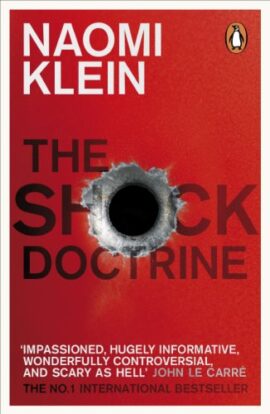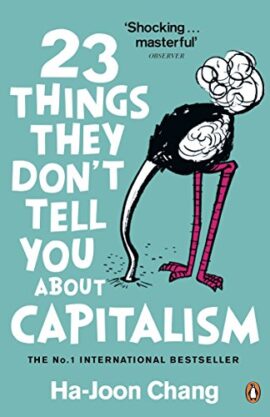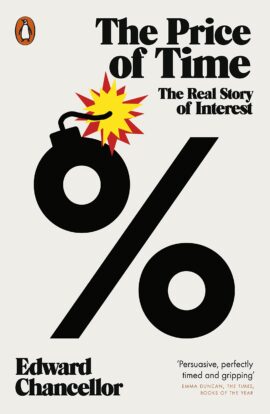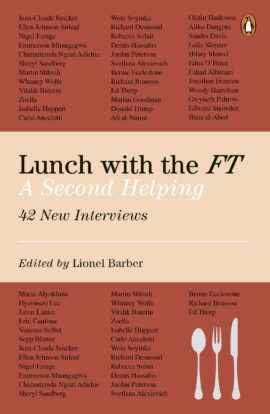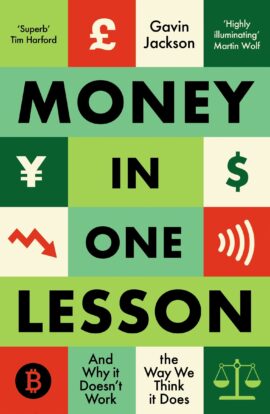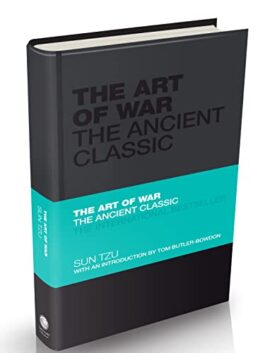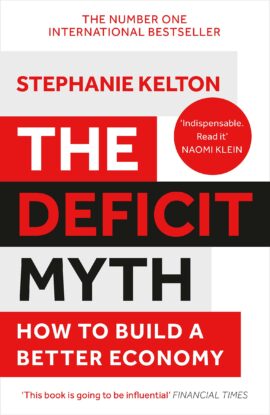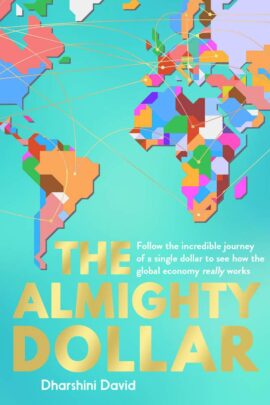«Good Economics for Hard Times: Better Answers to Our Biggest Problems» a été ajouté à votre panier. Voir le panier
Hit Refresh: A Memoir by Microsoft’s CEO
2.300,00 د.ج
Hit Refresh: A Memoir by Microsofts CEO [Paperback] Nadella, Satya
2
Items sold in last 3 days
Félicitation ! vous bénéficiez d'une livraison gratuite !
0
People watching this product now!
Estimated delivery dates: septembre 24, 2025 – octobre 1, 2025
Catégorie : Business
Description
Hit Refresh: A Memoir by Microsofts CEO [Paperback] Nadella, Satya
Informations complémentaires
| Editeur |
|---|
Produits similaires
The Shock Doctrine: The Rise of Disaster Capitalism
3.450,00 د.ج
Around the world in Britain, the United States, Asia and the Middle East, there are people with power who are cashing in on chaos: exploiting bloodshed and catastrophe to brutally remake our world in their image. They are the shock doctors. Thrilling and revelatory, "The Shock Doctrine" cracks open the secret history of our era. Exposing these global profiteers, Naomi Klein discovered information and connections that shocked even her about how comprehensively the shock doctors' beliefs now dominate our world - and how this domination has been achieved. Raking in billions out of the tsunami, plundering Russia, exploiting Iraq - this is the chilling tale of how a few are making a killing while more are getting killed.
23 Things They Don’t Tell You about Capitalism
2.530,00 د.ج
Ha-Joon Chang's 23 Things They Don't Tell You About Capitalism turns received economic wisdom on its head to show you how the world really works.In this revelatory book, Ha-Joon Chang destroys the biggest myths of our times and shows us an alternative view of the world, including:There's no such thing as a 'free' marketGlobalization isn't making the world richerWe don't live in a digital world - the washing machine has changed lives more than the internetPoor countries are more entrepreneurial than rich onesHigher paid managers don't produce better resultsWe don't have to accept things as they are any longer. Ha-Joon Chang is here to show us there's a better way.'Lively, accessible and provocative ... read this book'Sunday Times'A witty and timely debunking of some of the biggest myths surrounding the global economy'Observer'The new kid on the economics block ... Chang's iconoclastic attitude has won him fans'Independent on Sunday'Lucid ... audacious ... increasingly influential ... will provoke physical symptoms of revulsion if you are in any way involved in high finance'Guardian'Important ... persuasive ... an engaging case for a more caring era of globalization'Financial Times'A must-read ... incisive and entertaining'New Statesman Books of the YearHa-Joon Chang is a Reader in the Political Economy of Development at the University of Cambridge. He is author of Kicking Away the Ladder: Development Strategy in Historical Perspective, which won the 2003 Gunnar Myrdal Prize, and Bad Samaritans: Rich Nations, Poor Policies and the Threat to the Developing World. Since the beginning of the 2008 economic crisis, he has been a regular contributor to the Guardian, and a vocal critic of the failures of our economic system.
The Price of Time
1.950,00 د.ج
*Longlisted for the 2022 Financial Times Business Book of the Year Award*All economic and financial activities take place across time. Interest coordinates these activities. The story of capitalism is thus the story of interest: the price that individuals, companies and nations pay to borrow money.In The Price of Time, Edward Chancellor traces the history of interest from its origins in ancient Mesopotamia, through debates about usury in Restoration Britain and John Law ' s ill-fated Mississippi scheme, to the global credit booms of the twenty-first century. We generally assume that high interest rates are harmful, but Chancellor argues that, whenever money is too easy, financial markets become unstable. He takes the story to the present day, when interest rates have sunk lower than at any time in the five millennia since they were first recorded - including the extraordinary appearance of negative rates in Europe and Japan - and highlights how this has contributed to profound economic insecurity and financial fragility.Chancellor reveals how extremely low interest rates not only create asset price inflation but are also largely responsible for weak economic growth, rising inequality, zombie companies, elevated debt levels and the pensions crises that have afflicted the West in recent years - conditions under which economies cannot possibly thrive. At the same time, easy money in China has inflated an epic real estate bubble, accompanied by the greatest credit and investment boom in history. As the global financial system edges closer to yet another crisis, Chancellor shows that only by understanding interest can we hope to face the challenges ahead.
Lunch with the FT: A Second Helping
3.450,00 د.ج
Lunch with the Financial Times has been a permanent fixture in the Financial Times for almost 25 years, featuring presidents, film stars, musical icons and business leaders from around the world. The column is now as well-established institution which has reinvigorated the art of conversation in the convivial, intimate environment of a long boozy lunch. On its 25th anniversary, Lunch with the Financial Times 2 will showcase the most entertaining, incisive and fascinating interviews from the past five years including those with Donald Trump, Sheryl Sandberg, Richard Branson, Yanis Varoufakis, Zadie Smith, Nigel Farage, Russell Brand and David Guetta, illustrated in full colour with James Ferguson's famous portraits.
Money in One Lesson
2.530,00 د.ج
Superb' - Tim Harford, author of How to Make the World Add UpMoney is essential to the economy and how we live our lives, yet is inherently worthless. We can use it to build a home or send us to space, and it can lead to the rise and fall of empires. Few innovations have had such a huge impact on the development of humanity, but money is a shared fiction: a story we believe in so long as others act as if it is true.Money is rarely out of the headlines – from the invention of cryptocurrencies to the problem of high inflation, extraordinary interventions by central banks and the power the West has over the worldwide banking system. In Money in One Lesson, Gavin Jackson answers the most important questions on what money is and how it shapes our world, drawing on vivid examples from throughout history to demystify and show how societies and its citizens, both past and present, are always entwined with matters of money.‘A highly illuminating, well-researched and beautifully written book on one of humanity’s most important innovations’ – Martin Wolf, chief economics commentator, Financial Times
The Art of War: The Ancient Classic
2.760,00 د.ج
The original and bestselling leadership book!Sun Tzu's ideas on survival and success have been read across the world for centuries. Today they can still be applied to business, politics and life. The Art of Wardemonstrates how to win without conflict. It shows that with enough intelligence and planning, it is possible to conquer with a minimum of force and little destruction.While most of us will never find ourselves in real battle situations, we all need strategies to operate effectively in work, love and life, we need to be able to manage conflict, and we need to be skilled at dealing with people. The Art of War is a time-tested resource for 'victory' in each of these areas, and has been proven over time.This luxury hardback edition includes an introduction by Tom Butler-Bowdon that draws out lessons for managers and business leaders, and highlights the power of Sun Tzu's thinking in everyday life.
The Deficit Myth: Modern Monetary Theory and How to Build a Better Economy
2.990,00 د.ج
THE INTERNATIONAL BESTSELLER'Kelton has succeeded in instigating a round of heretical questioning, essential for a post-Covid-19 world, where the pantheon of economic gods will have to be reconfigured' Guardian'Stephanie Kelton is an indispensable source of moral clarity ... the truths that she teaches about money, debt, and deficits give us the tools we desperately need to build a safe future for all' Naomi Klein'Game-changing ... Read it!' Mariana Mazzucato'A rock star in her field' The Times'This book is going to be influential' Financial Times'Convincingly overturns conventional wisdom' New York TimesSupporting the economy, paying for healthcare, creating new jobs, preventing a climate apocalypse: how can we pay for it all? Leading economic thinker Stephanie Kelton, shows how misguided that question is, and how a radical new approach can maximise our potential as a society. Everything that we've been led to believe about deficits and the role of money and government spending is wrong. Rather than asking the self-defeating question of how to pay for the crucial improvements our society needs, Kelton guides us to ask: which deficits actually matter?
The Almighty Dollar: Follow the Incredible Journey of Single Dollar to See How the Global Economy Really Works
2.530,00 د.ج
Have you ever wondered why we can afford to buy far more clothes than our grandparents ever could ... but may be less likely to own a home in which to keep them all? Why your petrol bill can double in a matter of months, but it never falls as fast? Behind all of this lies economics. It's not always easy to grasp the complex forces that are shaping our lives. But by following a dollar on its journey around the globe, we can start to piece it all together. The dollar is the lifeblood of globalisation. Greenbacks, singles, bucks or dead presidents: call them what you will, they are keeping the global economy going. Half of the notes in circulation are actually outside of the USA - and many of the world's dollars are owned by China. But what is really happening as our cash moves around the world every day, and how does it affect our lives? By following $1 from a shopping trip in suburban Texas, via China's central bank, Nigerian railroads, the oilfields of Iraq and beyond, The Almighty Dollar reveals the economic truths behind what we see on the news every day. Why is China the world's biggest manufacturer - and the USA its biggest customer? Is free trade really a good thing? Why would a nation build a bridge on the other side of the planet? In this illuminating read, economist Dharshini David lays bare these complex relationships to get to the heart of how our new globalised world works, showing who really holds the power, and what that means for us all.


